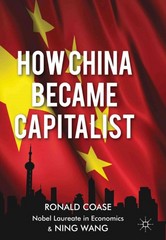Question
B. Return, if you will, to the duopoly situation with Jack and Jill as water producers from Chapter 17 of the Mankiw text (See Figure
B. Return, if you will, to the duopoly situation with Jack and Jill as water producers from Chapter 17 of the Mankiw text (See Figure 2 in Chapter 17). Suppose that Jack and Jill are at the duopoly's Nash equilibrium (80 total gallons) when a third person, John, discovers a water source and joins the market as a third producer.
a. Jack and Jill propose that the three of them continue to produce a total of 80 gallons, splitting the market three ways. If John agrees to this, how much profit will he make?
i. Under this proposed agreement, John produces _________ gallons of water, sells each gallon for ________ and earns _________ in profit. a. 26.67 ; $30 / gallon ; $800 b. 30 ; $40 / gallon ; $1200 c. 26.67 ; $40 / gallon ; $1066.67 d. 30 ; $30 / gallon ; $900 b. After agreeing to the proposed deal, John is considering increasing his production by 10 gallons. If he does, and Jack and Jill stick to the agreement, how much profit will John make? What does this tell you about the proposed agreement?
i. If John increases his production by 10 gallons and Jack & Jill both stick to the agreement in (a), John's profit will _____________ to ___________. [Hint: John's decision here will affect the market price of water!!] a. Increase ; $1000 b. Increase ; $1100 c. Decrease ; $900 d. Decrease ; $800
ii. The proposed agreement in (a) ____________ a Nash equilibrium, because it ________ represent each player's best response to the strategies chosen by the other players. a. Is ; does b. Is ; does not c. Is not ; does d. Is not ; does not
c. Can you arrive at the Nash equilibrium for this market with three producers? How does it compare to the Nash equilibrium with two producers? [Hint: Think here about whether EACH person has an incentive to change their output level from the agreement in (a). Then, think about what happens if EACH person DOES change their output level in the way John does in (b). You may assume that only the output levels given in Table 1 of Chapter 17 are possible in this question. That moves you from a strategy of "guess and check" to "reason and result"!!]
i. The Nash equilibrium with three producers in this market would be a market quantity of ___________ gallons, with each player earning a profit of __________. a. 60 ; $1200 b. 90 ; $900 c. 110 ; $366.67 d. 80 ; $1066.67
Step by Step Solution
There are 3 Steps involved in it
Step: 1

Get Instant Access to Expert-Tailored Solutions
See step-by-step solutions with expert insights and AI powered tools for academic success
Step: 2

Step: 3

Ace Your Homework with AI
Get the answers you need in no time with our AI-driven, step-by-step assistance
Get Started


